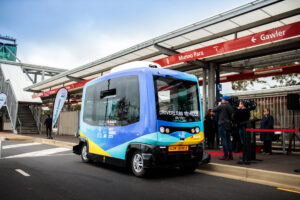
Fleet management is a cornerstone of operational success for many Adelaide businesses. From tradies to corporate giants, effective fleet management can drive productivity and slash costs. However, the road to efficiency is paved with potential pitfalls. Let’s explore 10 common fleet management mistakes and how to steer clear of them.
1. Forgetting maintenance: The silent profit killer
Skipping routine maintenance is like ignoring a ticking time bomb. Regular servicing can extend a vehicle’s life by up to 50% and reduce fuel consumption by 3-10 per cent. A preventative maintenance schedule can cut repair costs by 12-18 per cent annually. Remember, a well-oiled machine isn’t just good for business, it’s essential.
2. Overlooking fuel efficiency: Every drop counts
With fuel costs accounting for about 60% of a fleet’s operating budget, ignoring efficiency is like burning money. Proper driver training can improve fuel economy by up to 33%. Route optimisation software can reduce fuel consumption by 5-15 per cent. In today’s eco-conscious world, these savings benefit both your bottom line and the environment.
3. Flying blind: The perils of ignoring vehicle performance data
Without data, you’re managing your fleet in the dark. Telematics systems can provide a 15-20 per cent boost in productivity and cut fuel costs by up to 25 per cent. These systems offer real-time insights into vehicle location, fuel consumption and driver behaviour, allowing for data-driven decisions that optimise operations.
4. Underestimating driver training: Your greatest asset
Investing in driver training isn’t just about safety, it’s about efficiency. Trained drivers can reduce accident rates by up to 87 per cent and improve fuel economy by 10-15 per cent. In Adelaide, where traffic congestion costs billions of dollars annually, skilled drivers can navigate more effectively, saving time and fuel.
5. Resisting telematics: The power of information
Telematics is no longer a luxury, it’s a necessity. These systems can reduce idle time by 20-30 per cent, cut speeding by up to 90 per cent, and improve overall fleet productivity by 10-15 per cent. In Adelaide’s growing tech scene, embracing this technology keeps you competitive.
6. Myopic cost analysis: Look beyond the price tag
When acquiring vehicles, consider the Total Cost of Ownership (TCO). While the initial price is important, factors such as fuel efficiency, maintenance costs and resale value can significantly impact long-term costs. A vehicle with a higher upfront cost but better fuel economy could save up to 20 per cent over its lifetime.
7. Insurance oversights: don’t leave your fleet exposed
According to Canstar, the average cost of comprehensive car insurance in Australia is $2184 for females under 25 and $2437 for males under 25. For the other age groups, the average is $1733 for those 25-29 years, $1312 for ages 30-49 years old and $1006 for those over 50. For those buying an electric car, there can be a 40.1 per cent difference in quotes for comprehensive car insurance when compared to comparable petrol cars. Tailored fleet insurance can reduce premiums by up to 15 per cent while ensuring comprehensive protection.
8. Underutilised assets: Maximise your fleet’s potential
On average, fleet vehicles are utilised only 50-60 per cent of the time. By optimising scheduling and rightsizing your fleet, you can increase utilisation to 80-90 per cent, potentially reducing fleet size by 10-20% without compromising operations.
9. Security lapses: protecting your mobile assets
In 2023, 538 vehicles were reported stolen in South Australia, making security paramount. GPS tracking can reduce theft by up to 90 per cent, while immobilisers can cut insurance premiums by 5-10 per cent. Secure parking facilities in Adelaide’s CBD can reduce vandalism risks by up to 60 per cent.
10. Overlooking operational leases: flexibility meets efficiency
Operational leases can reduce capital expenditure by up to 30 per cent and provide tax benefits. In Adelaide’s dynamic business environment, the flexibility of operational leases allows companies to adapt their fleet to changing needs without long-term commitments.
Steering towards success
By sidestepping these common fleet management potholes, Adelaide businesses can turbocharge their operations, slash costs and cruise towards enhanced performance. Embracing best practices and cutting-edge technology isn’t just smart – it’s essential for navigating the complexities of modern fleet management.




